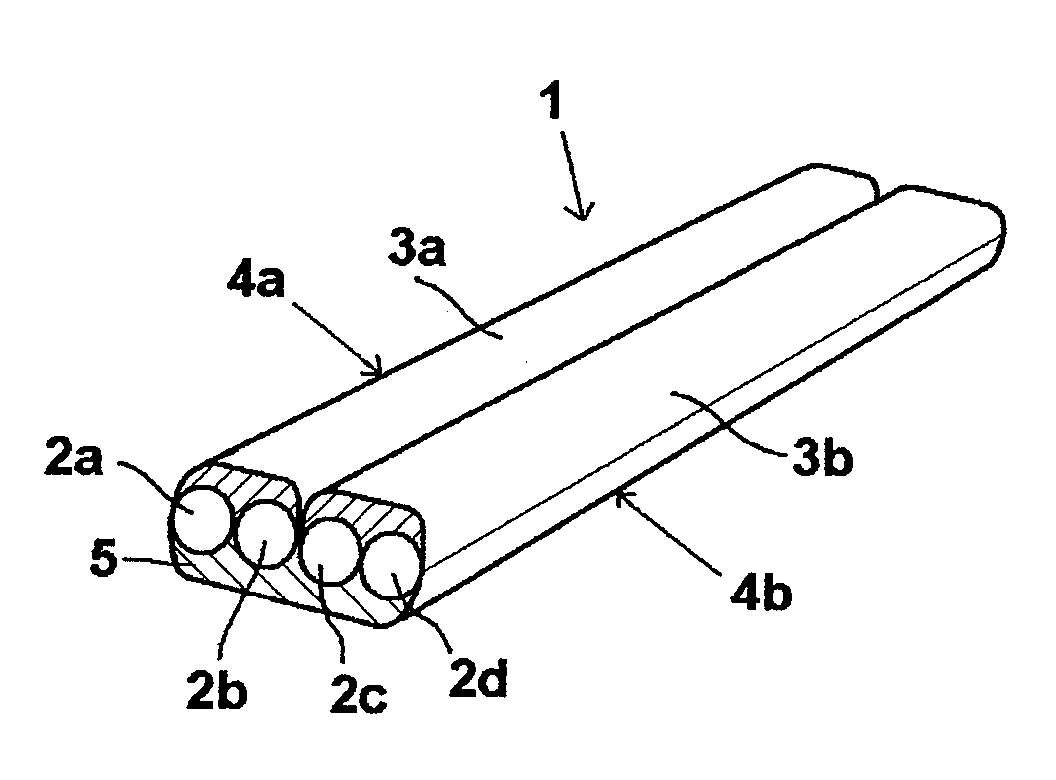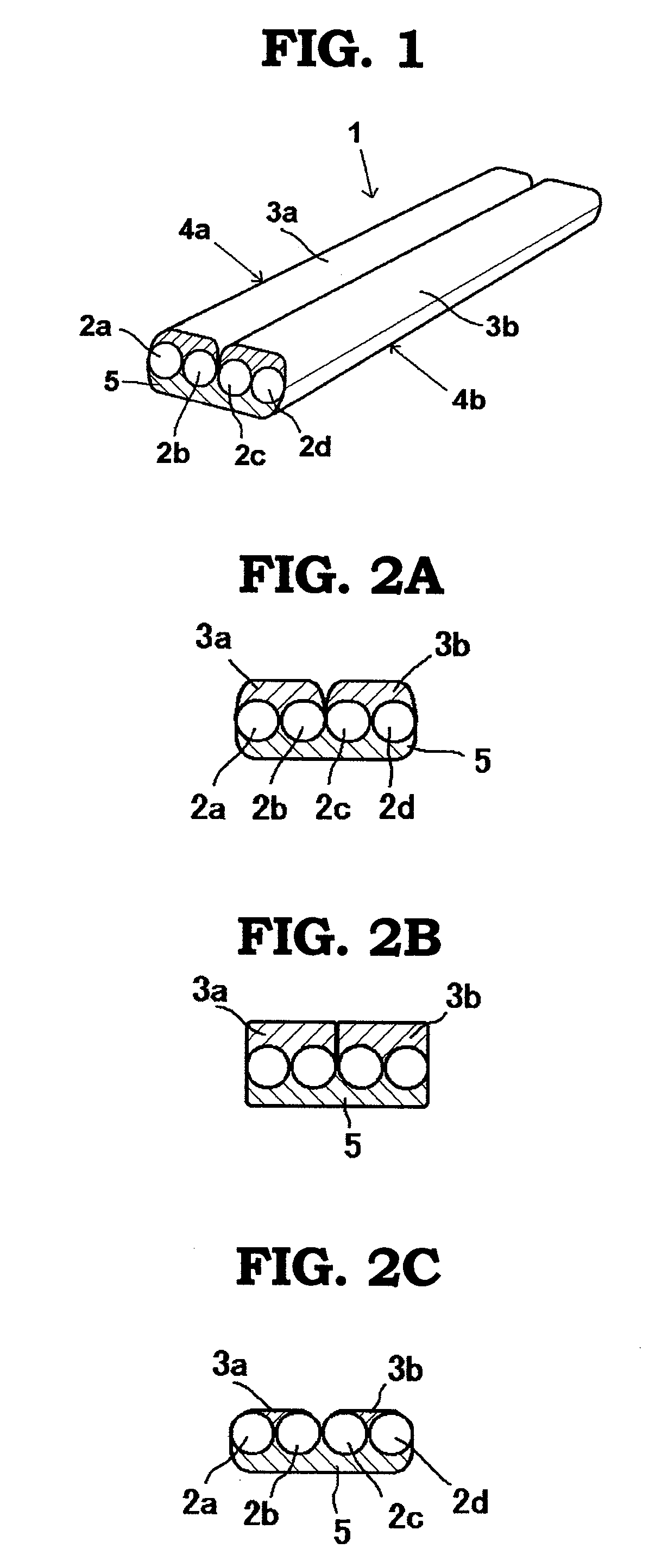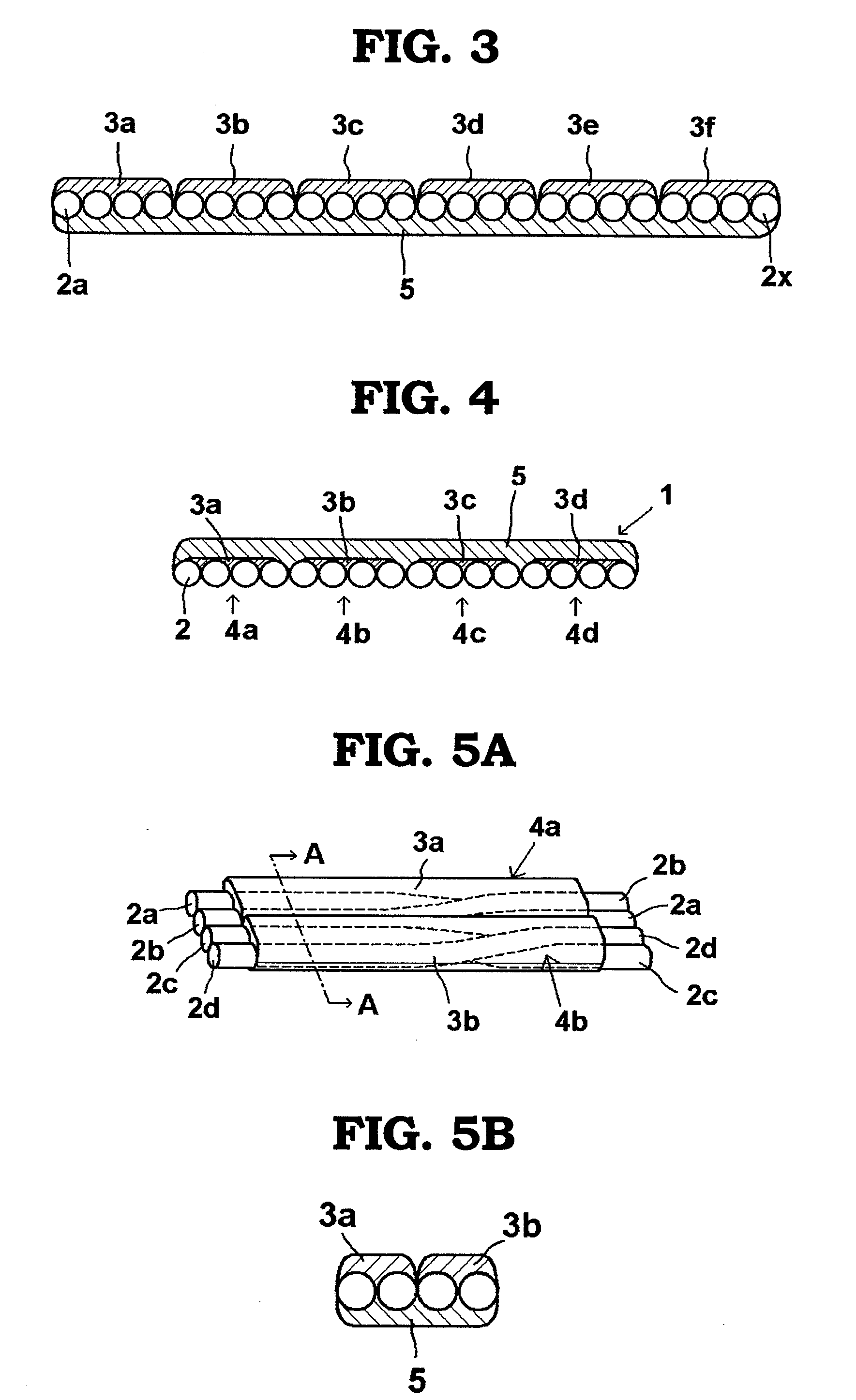Optical fiber structure and method of manufacturing same
- Summary
- Abstract
- Description
- Claims
- Application Information
AI Technical Summary
Benefits of technology
Problems solved by technology
Method used
Image
Examples
example 1
[0079] The applicator shown in FIG. 20 was used to produce an optical fiber structure. This applicator comprised a single-axis control robot 11 and a material feeding apparatus 20, where the single-axis control robot had a board 6 on which to place optical fibers. A ball screw shaft 12 was placed along the longitudinal direction, and a drive motor 13 was provided at one end. The other end was supported by means of a bearing 14, and the ball bearing was screw-connected to a movable unit 15. This movable unit had a needle 16 for supplying material placed vertically to the stage surface. The needle was connected to the material feeding apparatus by a flexible rubber tube 17.
[0080] First, as shown in FIG. 20 (a), four 30-cm long optical fibers 2a-2d (quartz single-mode fiber by Sumitomo Electric Industries; outer diameter 0.25 mm) were aligned in parallel on a board, and affixed with adhesive tape 21 near the ends. The needle (with an inner diameter of 1 mm) was affixed to the movable ...
example 2
[0083] An eight-core, 1-m long optical fiber structure was produced using the same manufacturing method described in Example 1, except that thermosetting silicone rubber resin (TSE392 by GE Toshiba Silicone; tearing strength 5 kg / cm) was used as the covering material for optical fibers on both sides. The covering material was cured by heating with a dryer for 1 hour using hot air of 120° C.
[0084] The optical fiber structure produced in this example exhibited excellent flexibility owing to the silicone rubber used as the covering material for aligned optical fibers, as well as good operability as a result of the bending flexibility during handling.
example 3
[0085] Twenty optical fiber units produced using the same method described in Example 1 were aligned in parallel to produce an eighty-core, 1-m long optical fiber structure in the same manner as in Example 1. Both the first covering body and second covering body were formed using room-temperature vulcanization silicone rubber (SE9186L by Toray Dow Corning).
PUM
 Login to View More
Login to View More Abstract
Description
Claims
Application Information
 Login to View More
Login to View More - R&D
- Intellectual Property
- Life Sciences
- Materials
- Tech Scout
- Unparalleled Data Quality
- Higher Quality Content
- 60% Fewer Hallucinations
Browse by: Latest US Patents, China's latest patents, Technical Efficacy Thesaurus, Application Domain, Technology Topic, Popular Technical Reports.
© 2025 PatSnap. All rights reserved.Legal|Privacy policy|Modern Slavery Act Transparency Statement|Sitemap|About US| Contact US: help@patsnap.com



